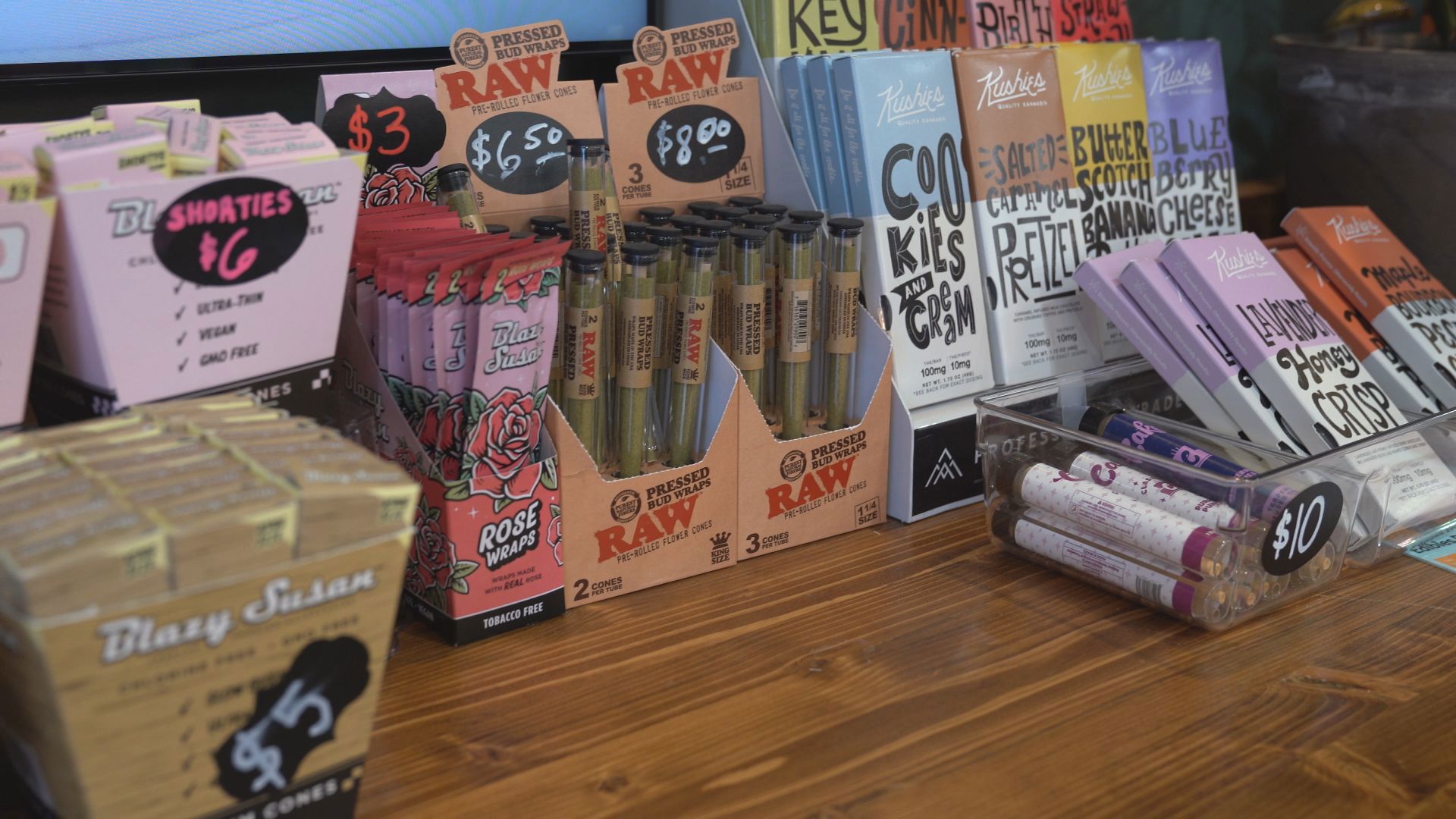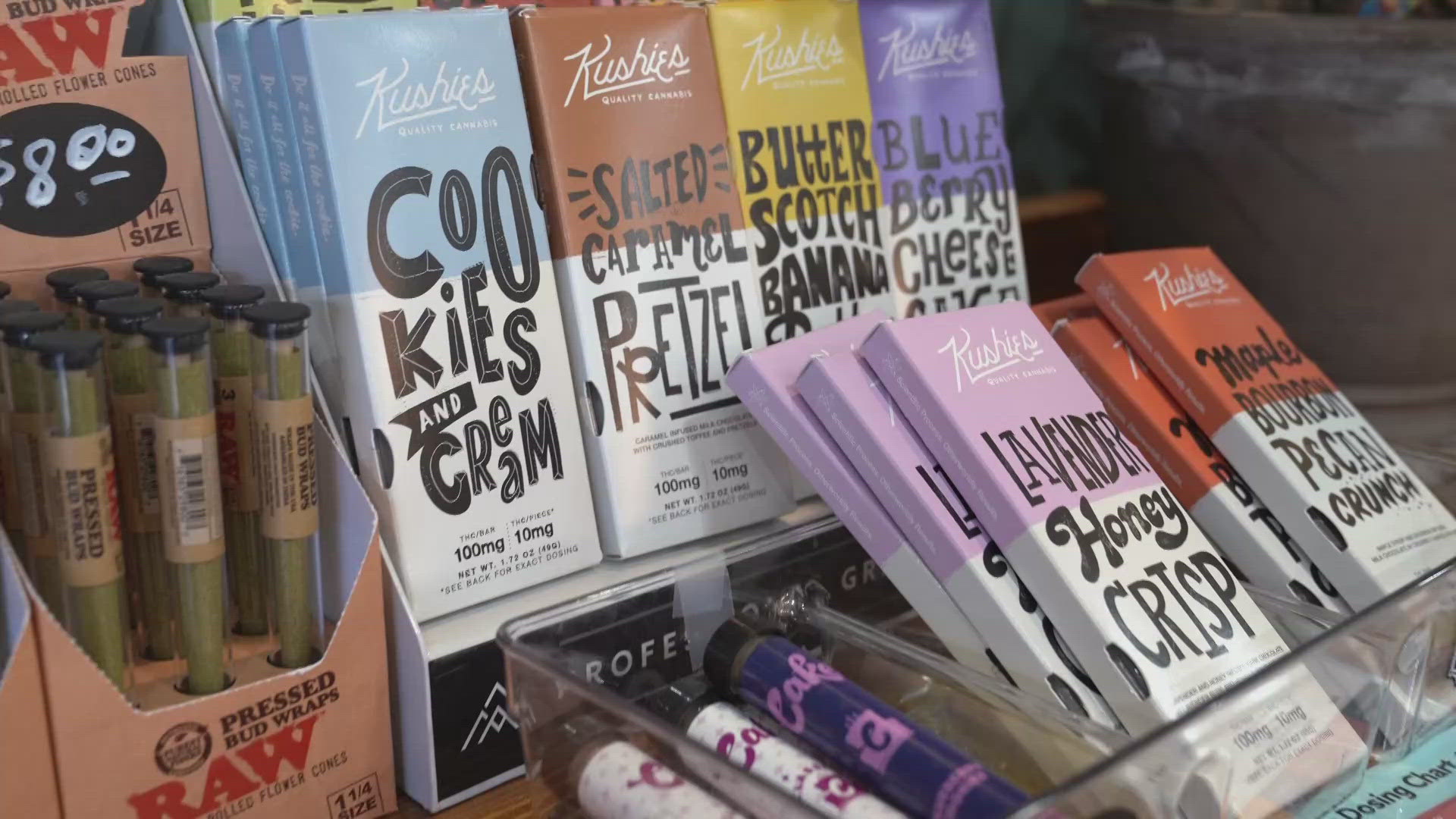Legislators target federal 'loophole' as Tennessee's hemp industry blooms
Products containing semi-synthetic cannabinoids meet legal requirements while getting consumers high.
WBIR

While Tennessee's hemp industry is booming, some lawmakers are working to close what they say is a "loophole" in legislation enacted years ago.
The so-called "loophole" has helped fuel a growing industry, providing medical relief for some and a livelihood for others.
In 2018, the Farm Bill federally legalized hemp. Under that law, hemp products must contain no more than 0.3% concentration of Delta-9 THC, the primary cannabinoid found in cannabis known for its intoxicating effects.
Hemp advocates are concerned a proposed amendment to the Farm Bill is an example of government overreach. Lawmakers say it's necessary to prevent certain products from landing in the wrong hands.
Semi-synthetic cannabinoids
The cannabis plant is filled with chemicals called cannabinoids. Different types of cannabinoids, like THC and CBD, occur naturally in the plant.
However, in some instances, THC and CBD are chemically altered to create semi-synthetic cannabinoids. These chemicals are used in products that create intoxicating effects while meeting the legal threshold—less than or equal to 0.3% Delta-9 THC. This is what lawmakers refer to as the "loophole."
Tennessee hemp shops sell products like cartridges, disposable vapes and edibles containing semi-synthetic cannabinoids such as Delta-8, THC-P and THC-B.
"That's what the 2018 Farm Bill sort of unlocked—the genetic code of the plant," The Blom Shop employee Michael Cover explained.
The booming industry
The Blom Shop in North Knoxville offers a variety of legal hemp products including flower, gummies and drinks.
"There's everything from cancer patients to people that just want to have a good time. What's beautiful about the hemp model is that it doesn't draw lines around that," Cover said. "I think a big part of what we do here is get the right product to the right person for what their experience needs to be like."
The Blom Shop sells mainly THC-A, a naturally occurring cannabinoid that's converted into Delta-9 THC when heat is applied. However, they also sell products containing semi-synthetic cannabinoids.
"People started trying to find things that were legal to sell that could have a similar effect to Delta-9 THC," Cover said. "I'm not a fan of those things. There are people who are. They are closer to what folks would classify as synthetic cannabis or synthetic weed," Cover added.
Cover believes semi-synthetic cannabinoids will become less popular, if not banned.
"I think the most natural and best expression of the plant is the flower itself," Cover said. "There is obviously a way to distill the THC from the plant and create edibles, beverages, to put it in vapes or anything like that. But, the longer the industry is around—the hemp industry, that is—we're moving away from things like that."
A legal battle
Legislators are working to find ways to close the Farm Bill "loophole" on both a state and federal level.
Tennessee law enacts certain regulations for products with natural, semi-synthetic and synthetic cannabinoids. However, since the industry is constantly growing, some cannabinoids—such as THC-B—are not specifically listed in the law but could still be regulated.
Tennessee Attorney General Johnathan Skrmetti joined 20 other state attorneys general in asking the federal government to address the "vagueness" behind the 2018 Farm Bill.
Most recently, the House Agriculture Committee voted to add the Miller Amendment to its 2024 Farm Bill reauthorization proposal.
The Miller Amendment changes the definition of hemp to "only include naturally-occurring, naturally-derived and non-intoxicating cannabinoids." According to the Tennessee Growers Coalition, the amendment would federally ban 90-to-95% of hemp products on the market.
Tennessee Representative John Rose (TN-06) supports the amendment.
"The purpose of the 2018 Farm Bill allowance was for the production of industrial hemp. It was never intended to be about producing intoxicating cannabinoid products," Rose said. "We've seen a lot of misuse of those products by people throughout the population. Many of us, particularly, are concerned about young children and teenagers who are able to gain access to these intoxicating products."
Cover emphasizes products sold at The Blom Shop are not intended for children.
"That's what [lawmakers] point to, and I would say that isn't what we do. There are actors out there that are trying to do things like that. They always have," Cover said. "They do it with alcohol, they do it with tobacco, they do it with all the things. It's very important to me that with cannabis we're clear—this is a product for adults."
The reauthorization of the Farm Bill is currently proceeding through Congress. If the Miller Amendment becomes law, it would significantly damage or close down many locally owned hemp businesses.
Rose said he's always concerned when economic harm is done but product sales must be balanced against the known risks.
"I know that doesn't make people happy, but I think that's what's best for the American people, and that is in keeping with what was intended when the 2018 Farm Bill was passed," Rose said. "I do favor, and would be in favor of a pathway to research the medicinal potential of CBD and THC products."
What's next?
The future of the hemp industry in Tennessee is unclear. Although advocates and consumers feel as though legislators do not fully understand the positive potential of cannabis, most agree that more research is needed surrounding semi-synthetic cannabinoids.
"There's still a lot of work that has to get done," Cover said.
He and others hope lawmakers can see the natural power of the cannabis plant. "I think everyone's going to eventually wake up to that. Tennessee might be the last state to do that, but I think we're going to get there."

